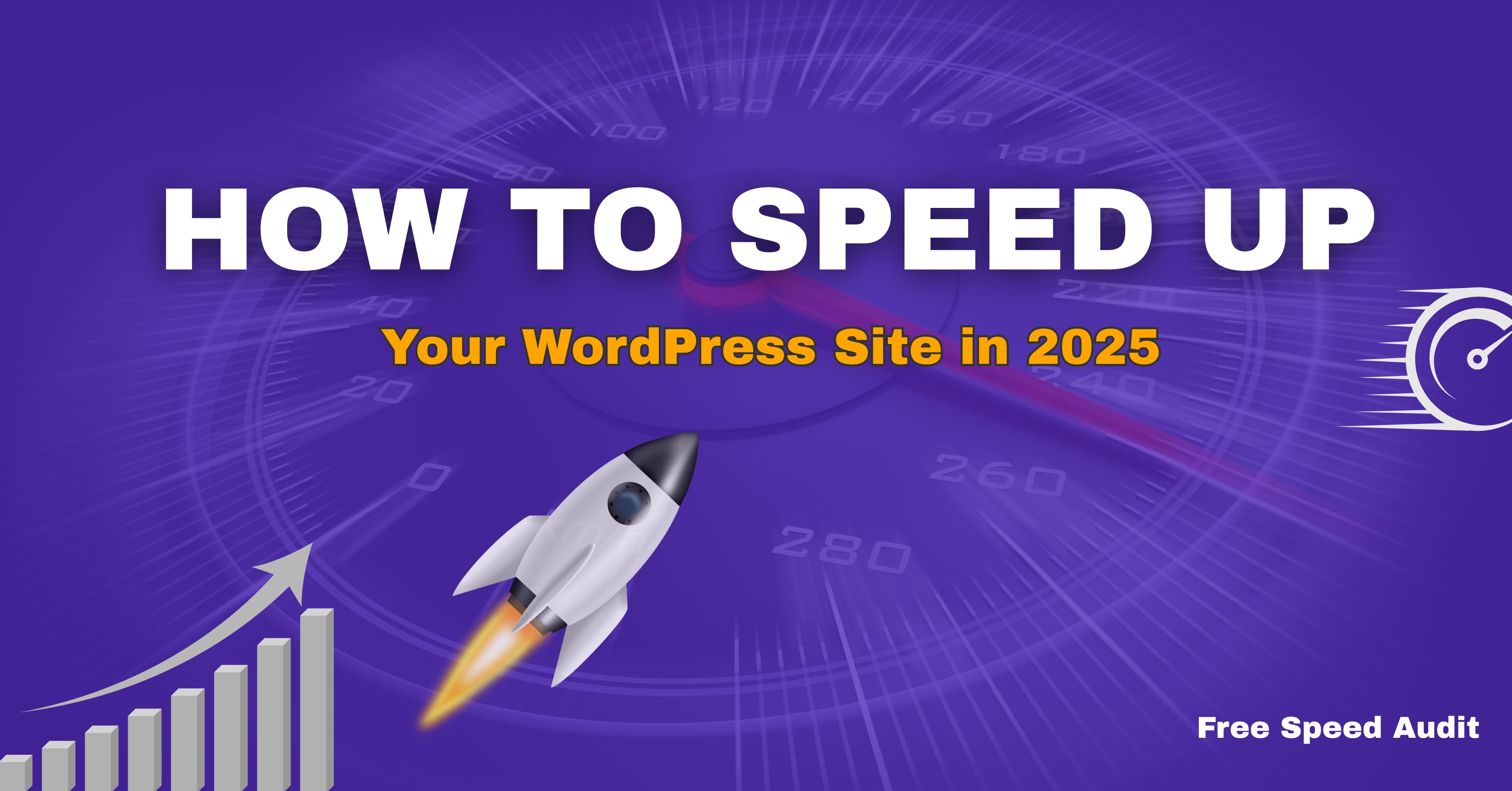WordPress site speed directly impacts SEO rankings, user experience, and conversion rates. In 2025, optimizing for Core Web Vitals like Largest Contentful Paint (LCP), Interaction to Next Paint (INP), and Cumulative Layout Shift (CLS) is non-negotiable for visibility on Google and AI-driven search platforms. Slow sites risk higher bounce rates and lost revenue, especially for eCommerce. This guide delivers actionable strategies—from quick fixes to advanced techniques—prioritizing semantic SEO and Large Language Model (LLM) optimization.
Why WordPress Site Speed Matters in 2025
Google’s Core Web Vitals are central to ranking algorithms. Poor LCP (>2.5s), INP (>200ms), or CLS (>0.1) scores tank visibility. User behavior reinforces this:
- Pages loading within 3 seconds retain 60% more visitors.
- Each 1-second delay reduces conversions by up to 50%.
- Mobile-first indexing makes responsive performance essential.
For eCommerce sites, speed equals revenue: faster Shopify/WooCommerce stores report higher sales and lower cart abandonment.
Quick Wins: Instantly Speed Up Your WordPress Site
Implement these immediately for measurable gains:
- Upgrade to Performance-Optimized Hosting
Managed WordPress hosts (e.g., WP Engine, SiteGround) offer built-in CDNs, server-level caching, and PHP optimization. Avoid shared hosting—server response time is critical for LCP. - Enable Caching
Install WP Rocket or W3 Total Cache. Caching generates static HTML files, reducing server load by 70%+. Pair with a CDN like Cloudflare for global asset delivery. - Run Speed Diagnostics
Use Google PageSpeed Insights or GTmetrix. Prioritize fixing issues flagged in these reports.
Advanced Optimization Techniques
Optimize Images Without Quality Loss
- Compress images with ShortPixel or Smush (reduce file sizes by 60-80%).
- Implement lazy loading (loading=”lazy” attribute) for below-the-fold content.
- Serve WebP format via CDN for faster renders.
Minify Code and Reduce Bloat
- Minify CSS/JS using Autoptimize. Remove unused code (e.g., unused CSS, legacy scripts).
- Limit plugins to essentials. Test each plugin’s impact with Query Monitor.
Database and Server-Level Tuning
- Clean databases monthly with WP-Optimize (remove post revisions, spam comments).
- Enable Redis object caching to slash database query times.
- Configure Nginx reverse proxies for enterprise-grade TTFB reduction.
Core Web Vitals: WordPress-Specific Fixes
- Improve LCP: Preload critical resources, upgrade hosting, optimize hero images.
- Optimize INP: Defer non-critical JS, use Web Workers, simplify event handlers.
- Fix CLS: Define image dimensions, reserve space for ads/embeds, avoid dynamic content shifts.
Troubleshooting Slow WordPress Sites
Common culprits and solutions:
- Heavy themes: Switch to lightweight themes (e.g., GeneratePress).
- Plugin conflicts: Audit plugins with P3 Profiler. Replace resource-heavy plugins.
- Server bottlenecks: Monitor with New Relic. Scale server resources during traffic spikes.
WordPress Speed Optimization Services: When to Hire Experts
Professional services (like quickfixwp.com) tackle complex issues:
- Server stack optimization (Varnish/Nginx configurations).
- Custom caching strategies for dynamic sites.
- Core Web Vitals audits with guaranteed score improvements.
Frequently Asked Questions
How to improve WordPress Core Web Vitals?
Focus on LCP (hosting/media), INP (JavaScript efficiency), and CLS (layout stability). Use tools like PageSpeed Insights for prioritized fixes.
Best caching plugin for WordPress?
WP Rocket (premium) or LiteSpeed Cache (free). Both offer one-click setup and Cloudflare integration.
Cost to speed up a WordPress site?
DIY solutions: $0-$100/year (plugins/CDN). Professional optimization: $300-$1,500 (audit + implementation).
Conclusion: Achieve Lightning-Fast Performance
WordPress speed optimization in 2025 demands a multi-layered approach: robust hosting, strategic caching, image/code optimization, and Core Web Vitals mastery. Sites loading under 3 seconds gain 60% more pageviews and 50% higher conversions. For complex needs, partner with specialists like quickfixwp.com for tailored solutions.
Optimizing for speed isn’t optional—it’s the baseline for user trust and search visibility.


